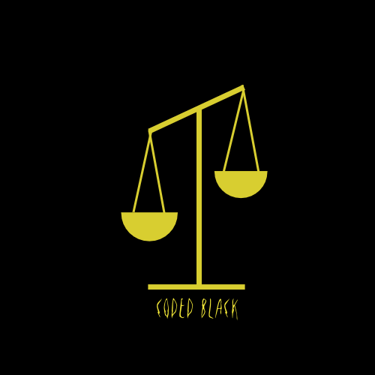THE 20th CENTURY:
ANOTHER ERA OF REVOLUTIONS
By the 20th century, race had become so embedded in the language of Colonial nations that its citizens had forgotten the instability and debates around its construction. Bolstered by literature and political campaigns, the supposed science of racial difference became an accepted norm despite all of the evidence to counter its hypotheses and findings. Thus even after the abolition of chattel slavery, Black people were deemed inferior and subjected to new forms of enslavement by other names. Of course, this new form of subjugation also served economic and political functions as well. In this section, you will find a slew of resources grappling with with the psychological impact of being Black in the US and UK, as well as a sampling of the variety of violence Black people suffered in the two countries. Despite their very different national beginnings–one as a colony of the other–the two nations tell the same story of anti-Blackness, occasionally at the same time.
Non-Fiction
Action Group statement for the Defence of the Mangrove (1970). Available via National Archives.
Beckett, Lois. “‘We Don’t See No Riot’: Charlottesville Protesters Criticise Huge Police Presence.” The Guardian, 12 August 2018.
Bishop of Durham, Bishop of Ripon, et al., Hymns for Empire Day, London: Skeffington and Son, 1910.
Bell, Kenneth N. and Morrell, W.P. (eds). Select Documents on British Colonial Policy, 1830–1860. Oxford: Clarendon Press. 1928.
“Black and White at Liverpool – Police Protection for Negroes”, The Times, 11 June 1919.
“Black People’s News Service”. Published by the British Black Panther Party (1970). Available via The National Archives.
“Bloody Sunday: A Flashback of the Landmark Selma to Montgomery marches”. NBC News, March 21, 2018.
DC Colin Lynch, three photographs taken from a police file of evidence against the Mangrove Nine. Available via The National Archives.
‘Discrimination and Disintegration’, editorial African Telegraph, 1/13 (July-August 1919), p.253.
“Deep Divisions in Americans’ Views of Nation’s Racial History – and How To Address It”. Pew Research Center. 12 August, 2021.
Du Bois, W. E. B. The Souls of Black Folk. [1903] Oxford: Oxford University Press 2007. Ed. Brent Hayes Edwards.
Also available via Project Gutenberg.
Empire Day celebration in the North West of England. Will Onda. 1909. BFI. Available via Colonial Film: Moving Images of the British Empire.
“Escaping the Liverpool race riots of 1919”. BBC News, 29 October 2022.
Gifford, Lord Tony. (QC). Broadwater Farm Inquiry: report of the independent inquiry into disturbances of October 1985 at the Broadwater Farm Estate, Tottenham, chaired by Lord Gifford. London: Karia Press, 1986.
Gifford, Lord Tony. (QC). Broadwater Farm Revisited. London: Karia Press, 1989. Available via Bernie Grant Trust.
Hannan, Maria, et. al. Deaths in or following Police Custody: An examination of the cases 1998/99 – 2008/09. London: Independent Police Complaints Commission (IPCC), 2011.
Hearn, Lafcadio. Two Years in the French West Indies. New York/London: Harper & Brothers Publishers, 1903.
Home Office. Racial Attacks: Report of a Home Office Study. London: Home Office, 1981.
“How bloodshed in Selma led to the US Voting Rights Act 1965”. Witness History. BBC Sounds. 07 Mar 2025.
Hunte, Joseph A. Nigger Hunting in England? London: West Indian Standing Conference, 1966.
The Keys: Official Organ of The League of Coloured Peoples (1933-1939).
King Jr, Martin L. “Letter From Birmingham Jail”. (1963). Audio recording.
Also available at Bill of Rights Institute and National Urban League.
Macpherson, William. The Stephen Lawrence Inquiry. 1999.
Margaret O’Connell, witness statement, Black Power demonstration and march, Notting Hill, London, 17 August 1970. Available via The National Archives.
Montagu, Ashley. Statement on Race: An Annotated Elaboration and Exposition of the Four Statements on Race Issued by the United Nations Educational, Scientific, and Cultural Organization, 3rd ed. London [etc.]: Oxford University Press, 1972.
Page, Thomas Nelson. The Negro: The Southerner’s Problem. New York: Scribner’s Sons, 1904.
The People's Song Book, Dundee and London: John Leng and Company, 1915.
“Race Riots in Liverpool”. Witness History. BBC Sounds, 25 July 2016.
Reuter, Edward Byron. The Mulatto in the United States, including a study of the rôle of mixed-blood races throughout the world. Boston: R. G. Badger, 1918.
Also available via Internet Archive.
“Virginia Health Bulletin: The New Virginia Law To Preserve Racial Integrity, March 1924”.
Also available via Document Bank of Virginia, the DNA Learning Center, and the Library of Virginia Education.
‘Why I’ll fight the heavy mob’, Post Mercury, 17 December, 1971.
Fiction
Dixon, Thomas. The Clansman: An Historical Romance of the Ku Klux Klan. New York: Grosset & Dunlap, 1905.
Dixon, Thomas. The Leopard’s Spots: A Romance Of The White Man’s Burden—1865-1900. New York: Doubleday, Page & Co, 1902.
Fitzgerald, Scott. The Great Gatsby. New York: Charles Scribner's Sons, 1925.
Also Available via Internet Archive.
G H Chirgwin “The White-eyed Kaffir”.
King, Stephen. The Shining (1977), The Stand (1978), The Running Man (1982), The Green Mile (1996), Bag of Bones (1998), Duma Key (2008), End of Watch (2016), The Outsider (2018), Later (2021)
Lovecraft, H.P. (numerous, for example):
“On the Creation of Niggers” (1912) [alternate link here], “The Horror at Red Hook” (1927), The Call Of Cthulhu (1928), “Herbert West: Reanimator” (1922), “The Rats In The Walls”(1924), “Medusa’s Coil" (1939), The Case of Charles Dexter Ward (1941), The Shadow Over Innsmouth (1941).
Matheson, Richard. I Am Legend (1954), “The Children of Noah” (1957), “From Shadowed Places” (1960).
Mitchell, Margaret. Gone with the Wind. 1936.
Stoker, Bram. The Lair of the White Worm. W. Foulsham & Co., 1911.
Tolkien, J.R.R. The Hobbit, or There and Back Again (1937); The Lord of the Rings trilogy (1954-1955).
